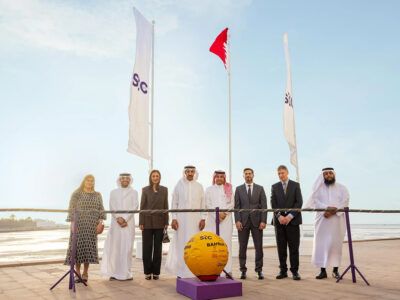Even as we say goodbye to the second decade of the 21st century, many are still worried about automation. They would argue that technology causes more problems than it solves. But the past year, more than any other in our history, bears technology out as an indispensable tool. Remote working kept many in a job who would otherwise have been unemployed. Distance learning allowed students to keep studying. Business intelligence empowered industries around the globe to keep up with the changing preferences of customers.
But let us be fair. Rapid change requires not just infrastructure but talent – an entire culture of innovation emanating from flexible business leaders who understand that the world never stops turning and its people never stop changing. This coming together of innovative spirit with technology solutions has a name: tech intensity. Competitiveness has never been more important, and many across the Middle East and Africa will sink or swim on their ability to bake the tech intensity cake.
Tech intensity is not something that is simply measured by looking at the proportion of an organisation’s revenue that is set aside for R&D or solutions procurement. It is much more than that, and regional firms that thrive in the new global digital economy will be the ones that recognise a simple reality: tech intensity is a way of life, a culture change. It is the continued ability to not only adopt technology but also build digital capabilities to make the most of that technology in entirely new ways.
Tech-enabled competitiveness
In retail, being competitive means fulfilling orders on time, every time; cloud-based infrastructure can ensure low-latency customer experiences, while AI-driven warehousing can guarantee intelligent stocking. In FSI, customer-facing bots can alleviate the workloads on human colleagues, who can then devote more of their time to upselling and cross-selling. And heavy industry and manufacturing can employ the power of the internet of things to be innovative in a myriad of ways. All these approaches demand a culture of tech intensity.
But effective tech intensity requires a rich skillset. A McKinsey report from 2017 estimated that by 2030 14 percent of the global workforce will be displaced to some degree by automation. Those that do not upskill or reskill will face a career change or long-term unemployment. In another study from February last year, the analyst firm revealed that 87 percent of companies worldwide are trying to overcome skills gaps or anticipate such struggles within the next few years. But more than half of those surveyed admitted they had no concrete ideas of how to plug those gaps.
Already, professionals across the region are grappling with the onset of automation. They may even have a keen sense that the coronavirus pandemic has laid bare the benefits of technology in a way that may accelerate future automation. Those workers are now contemplating how they might fit into a more digitised organisation. Their employers must figure out how to best move with the times, determining who can be upskilled, who can be reskilled and who needs to be redeployed.
Repurposing workforces
Some continue to paint a doom-and-gloom picture of an automated future, but tech intensity is all about repurposing workforces and redefining roles in ways that empower employees. While a huge part of this redefinition of roles will involve training employees in new skills that touch heavily upon technology, the change does have another aspect. Many senior executives and HR professionals across the region will be aware of ongoing discussions about soft-skills gaps. Cognitive reasoning, critical thinking, social and emotional empathy, adaptability, patience, resilience – all of these are perceived to be in short supply, but they could be developed by ensuring they are part of an organisation’s skilling programme.
Microsoft has long been committed to bridging the skills gap as part of our mission to empower people and organisations to achieve more. Over the past two years alone, more than 16 million youth from across the Middle East and Africa have gained the opportunity to acquire and boost their technology skillsets. Meanwhile, our Global Skilling Initiative launched last year is making headway towards upskilling 25 million people worldwide in an evolving coronavirus economy. And platforms such as the AI Business School and Microsoft Cloud Society have upskilled nearly 300,000 professionals in cloud and AI to supercharge their technical and business acumen.
The right kinds of skills amid a culture of tech intensity make a firm as ready as it can be for the next big disruption. These are the cultures that will thrive and rise to transform organisations and industries. The right approach can build strong capabilities that reshape the face of the region and bring economic prosperity to us all.
Brand View allows our business partners to share content with Arabian Business readers.
The content is supplied by Arabian Business Brand View Partners.








